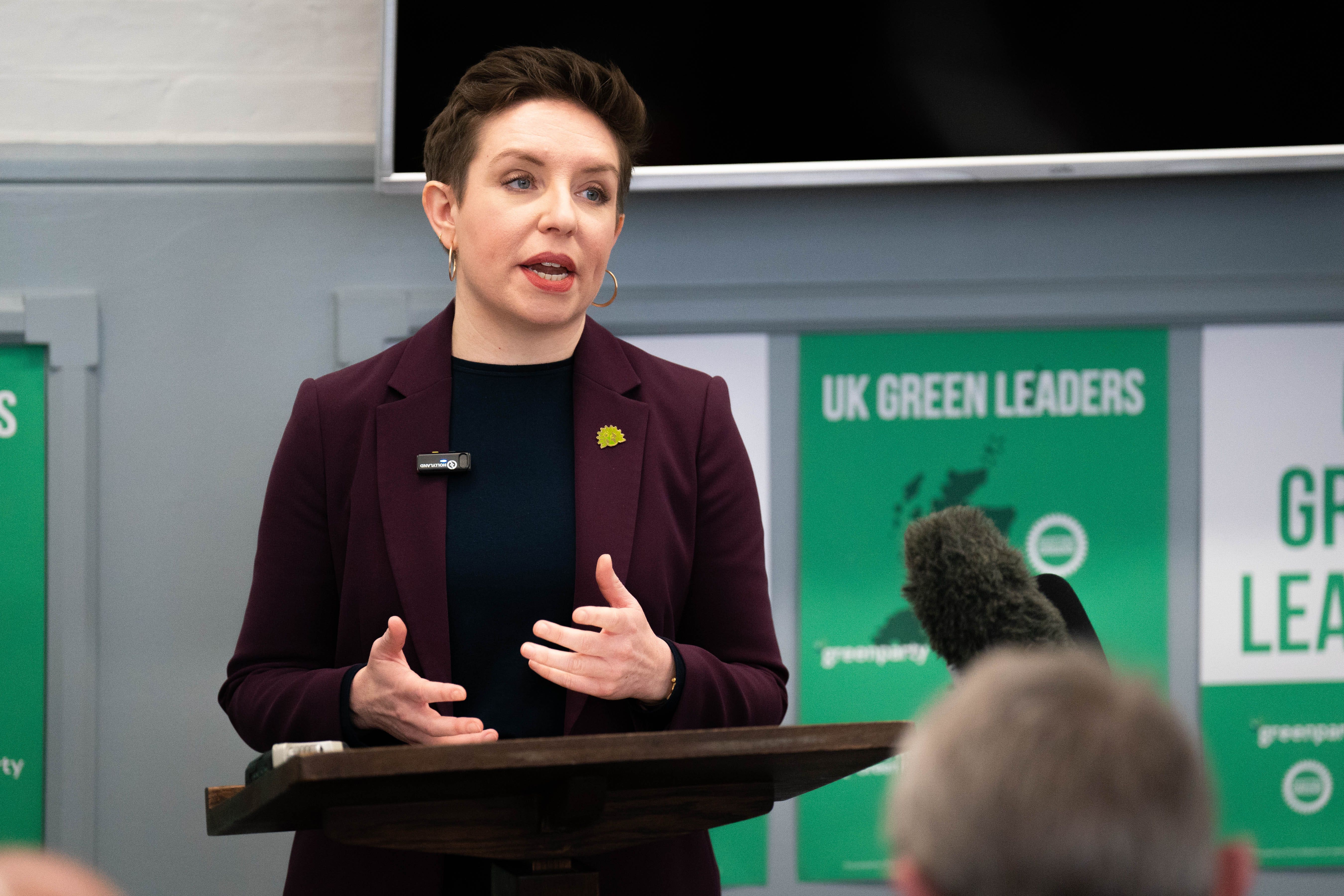Greens set out climate policies and electoral reform ‘red lines’ for co-operation
The Green Party said it would stand candidates right across the country and hoped to secure four seats at the next election.

Your support helps us to tell the story
From reproductive rights to climate change to Big Tech, The Independent is on the ground when the story is developing. Whether it's investigating the financials of Elon Musk's pro-Trump PAC or producing our latest documentary, 'The A Word', which shines a light on the American women fighting for reproductive rights, we know how important it is to parse out the facts from the messaging.
At such a critical moment in US history, we need reporters on the ground. Your donation allows us to keep sending journalists to speak to both sides of the story.
The Independent is trusted by Americans across the entire political spectrum. And unlike many other quality news outlets, we choose not to lock Americans out of our reporting and analysis with paywalls. We believe quality journalism should be available to everyone, paid for by those who can afford it.
Your support makes all the difference.Strong climate policies and electoral reform will be the price of Green Party support for any future government, the party’s co-leaders have said.
At a conference in London, co-leaders Carla Denyer and Adrian Ramsay said the Greens would look to quadruple the party’s total number of MPs from one to four.
Mr Ramsay said: “Nationally, if we are going to make that difference on tackling the cost of living crisis, on restoring local services, on protecting and restoring nature and on the climate emergency, on all of those issues, we need Greens as part of that debate in Parliament.
“And we’re going to be standing candidates right across the country, and the more Green votes and more Green seats that we get, the bigger impact we can have on political debate.”
The UK’s only Green MP, Caroline Lucas, has said she will stand down at the next election after 14 years in Parliament. The party is hoping it can retain her seat in Brighton, as well as winning seats in areas such as Bristol, East Anglia and Herefordshire.
Ms Denyer acknowledged that the party “probably won’t have the keys to Number 10” after the election, but would be willing to work with parties as the Greens are doing with the SNP in the Scottish Parliament.
She said: “We would be prepared to consider co-operating and it would be up for negotiation, but I feel that we definitely need to have at least two red lines, one of which is strong climate policies and the other is a proportional voting system.”
Both co-leaders expressed disappointment in Labour’s recent U-turn on a pledge to invest £28 billion per year in green projects, with Mr Ramsey saying it was “a real retrograde step” that “shows why it’s so important to have Green voices in Parliament to challenge the other parties”.